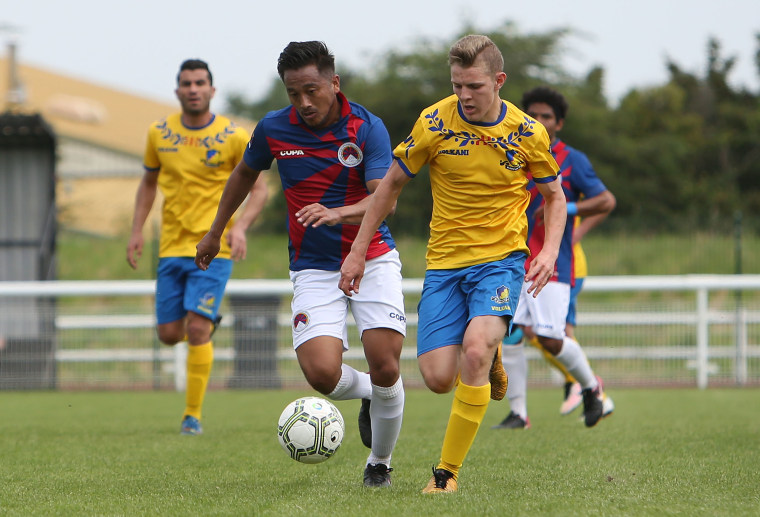LONDON — In the so-called beautiful game, the beauty is sometimes on the inside.
While soccer’s super-rich stars are preparing for Thursday's glitzy opening ceremony at the 2018 World Cup in Russia, an altogether less glamorous contest took place last week at the other end of the sport's spectrum.
The World Football Cup is the antithesis of professional soccer’s razzmatazz.
Organized by the Confederation of Independent Football Associations (CONIFA), it represents 16 forgotten nations, oppressed minorities and ethnic groups that are shut out of official competitions by FIFA, soccer's main governing body.
The World Football Cup is run entirely by volunteers, and many of the teams rely on crowdfunding to pay for shoes, shirts and plane fares.
Saturday’s final saw Karpatalya, a mountainous corner of Ukraine that was once part of Hungary, crowned champions after beating Northern Cyprus, the Turkish outpost not recognized by the international community. The game went to penalties after a 0-0 tie, with Karpatalya winning 3-2. Tickets cost £11 ($15).
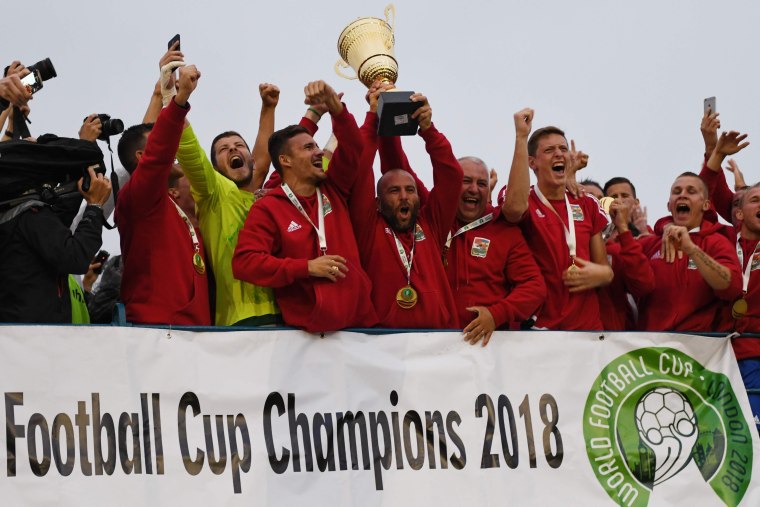
“For these teams it is more than just a game, it is the only chance they have to represent their true selves,” said Per-Anders Blind, CONIFA’s director.
CONIFA’s members range from the dispossessed such as Darfur, where the indigenous population is fighting a long war against the Sudanese government, to self-declared minorities such as Western Armenia, representing the Armenian diaspora in what is now eastern Turkey.
There are also countries barred from FIFA because they don’t have the stadiums and hotels required to host major events, such as the tiny Pacific island nations of Tuvalu and Kiribati.
Others took part for fun: the English county of Yorkshire, and Cascadia, a “distinct cultural entity, isolated bio-region and cultural society” in the states of Oregon and Washington.
“There are some incredible stories from these teams,” Blind said. “You would be amazed at some of the places and people you never knew about.”
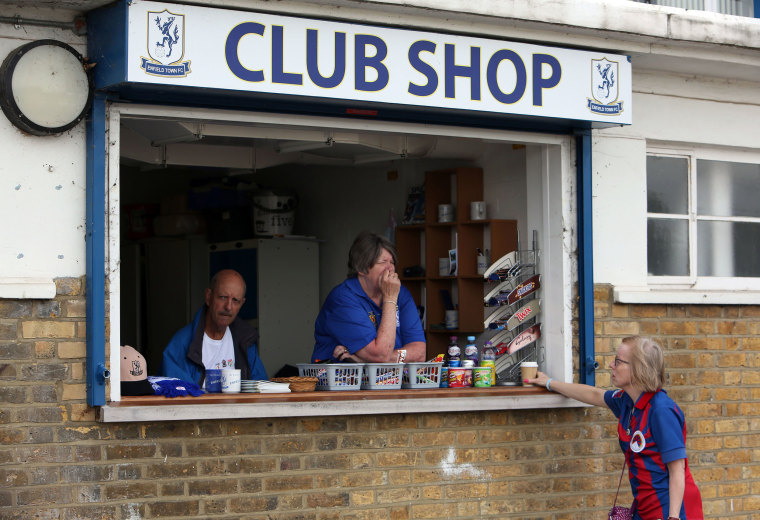
Perhaps appropriately, even the host nation was displaced.
This year’s official CONIFA host was Barawa, a port in Somalia that claims its own culture and language. But the security situation there means the Barawa team is based in London. And that meant the tournament took place in the British capital.
While billions are expected to watch the official World Cup when it kicks off Thursday, CONIFA games attracted more modest crowds. About 200 showed up on June 7 to see Tibet play Kabilya, a Berber ethnic group of about two million people in modern-day Algeria.
There were no television cameras, although one Tibetan fan streamed the game on Facebook Live using his iPhone.
The venue was Enfield Town Football Club, which is located in a suburb close to London’s orbital freeway. The team plays in the Bostik Adhesives League, the eighth tier of English football.
Its art deco stadium — street address: 3 Donkey Lane — is named after Queen Elizabeth II but is no palace.
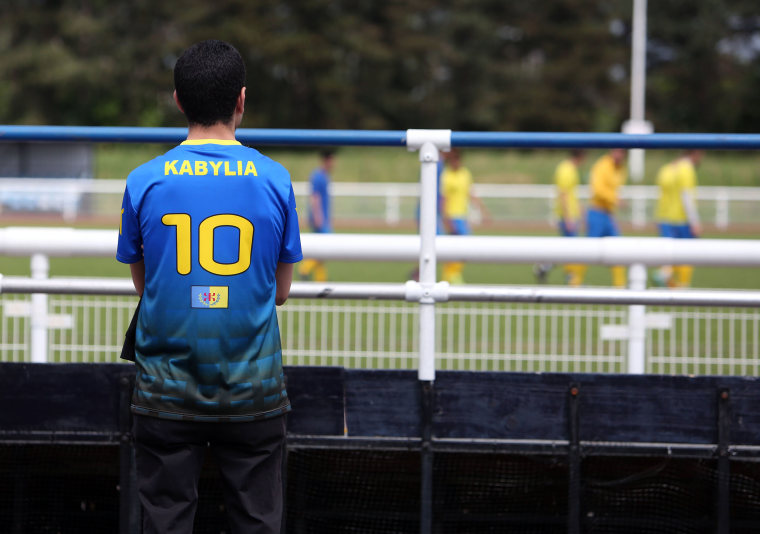
The Tibet vs. Kabilya game was postponed by an hour because it was being used for a local school's sports day.
But while there was no pomp, there was passion.
“It means so much to us to be able to play in our shirt, our flag, for our country,” said Passang Dorjee, the Tibetan team's coach and also the head of Tibet’s sports association, which is based in exile in neighboring India. “This is something we cannot otherwise do. It is an expression of ourselves.”
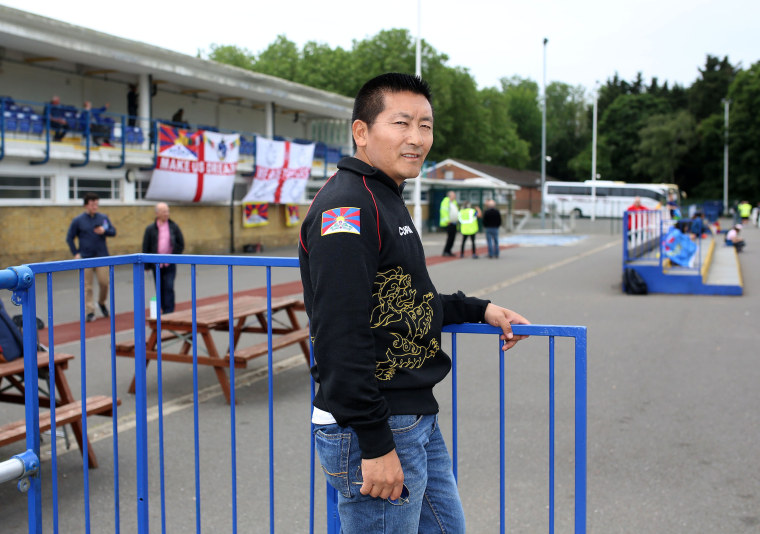
Before kickoff, the Tibetan team gave their opponents a khata, a traditional ceremonial scarf considered an act of blessing, and their respective national songs were played through a loudspeaker.
Both squads were assembled from around the world, and in the case of Kabilya had barely met before taking part in the tournament.
Tibetan player Tenzin Yougyal, 24, is a business administration student from the Bushwick area of Brooklyn. “It is a proud honor to represent Tibet,” he said, “and to show the world we are here.”
Many players faced difficulties getting visas to take part in the tournament, and other political hassles.
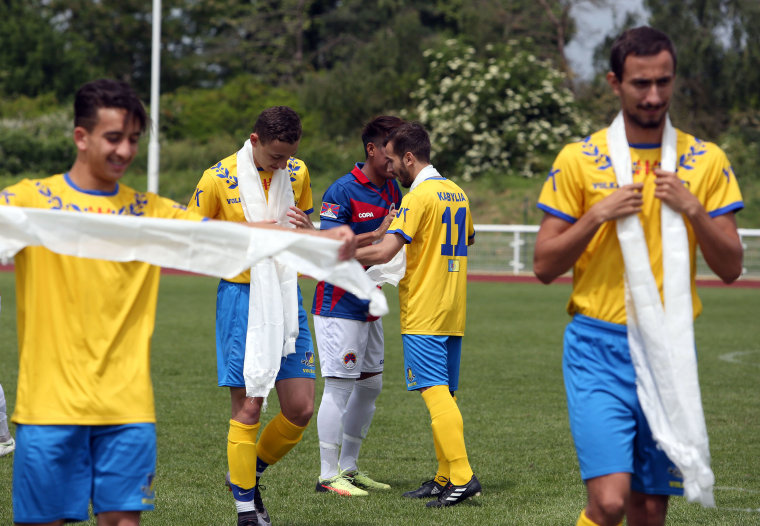
Among the small but enthusiastic crowd was Chope Paljor Tsering, a former Tibetan minister and the longest-serving representative of the Dalai Lama in Europe, who was in London visiting his son.
“I heard that some of the commercial sponsors were scared off because China doesn’t want them to encourage Tibet,” he said. “It’s absurd, but that’s what happens.”
Drider Khelifa, Kabilya's 25-year-old captain, said his team included players living in Algeria, France, the U.S., Canada and Europe. “We just met each other the other day,” he explained.
Paris-based businessman Sab Ammarkhodja, the sports minister in Kabilya’s self-declared government in exile, has been arrested in Algeria for advocating the Kabilyan cause. He said some of the players were asked to confirm they would not support Kabilya's independence movement.
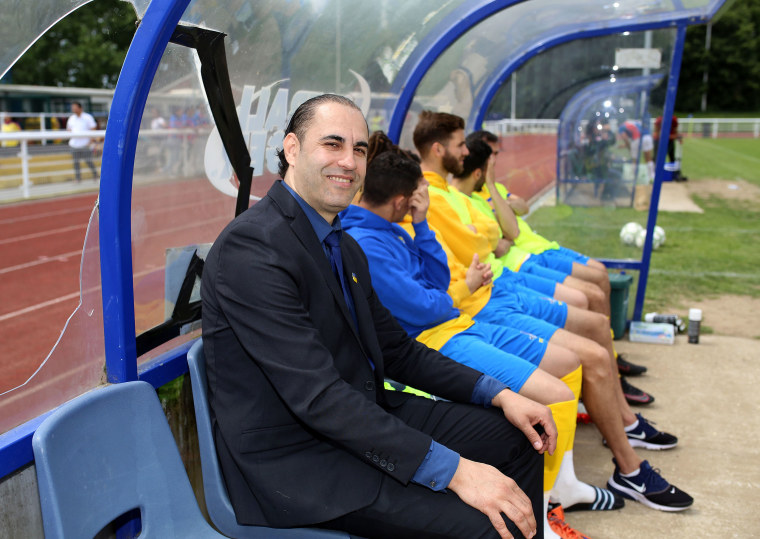
“We represent not just ourselves but the people who are not allowed to be here,” Ammarkhodja added.
Sri Lanka's High Commission in London wrote to CONIFA complaining about the participation of Tamil Eelam, the team that lost 6-0 to Georgian breakaway region Abkhazia.
But there was no politics last week.
The blessing apparently worked for Kabilya, and Tibet lost 8-1.
“It’s annoying, but we are here for the participation,” said Yougyal, the Brooklyn resident.
